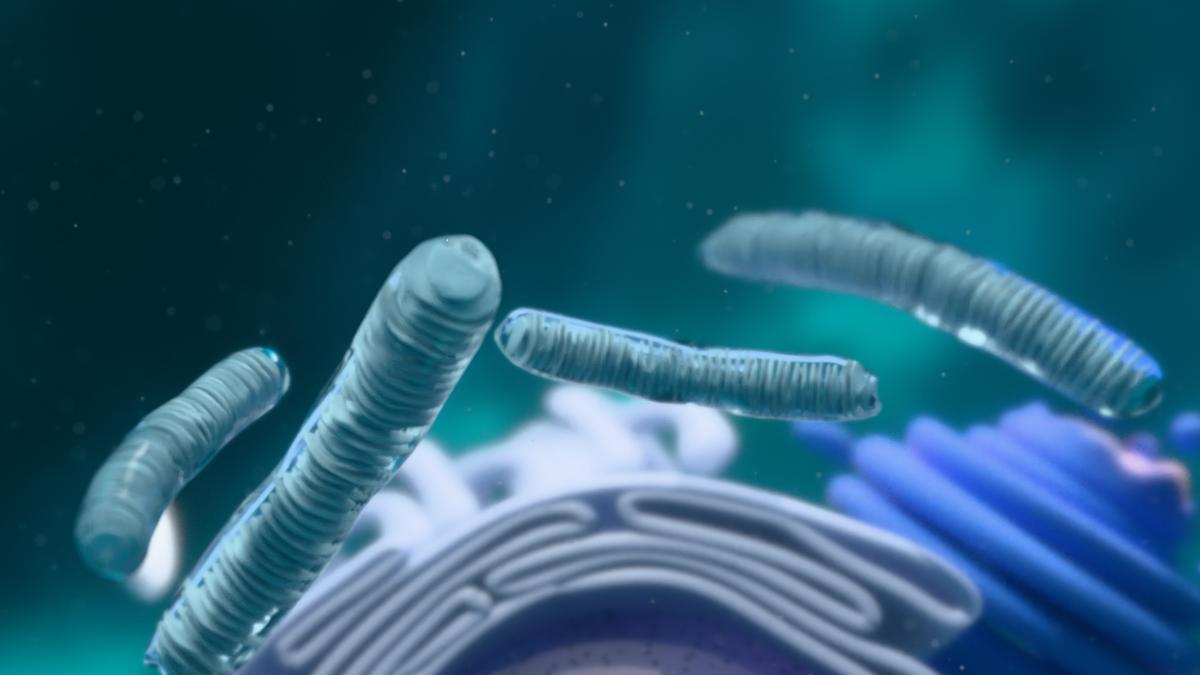The acquisition of mitochondria is the biggest evolutionary jump in the development of complex multicellular life.
| Photo Credit: Getty Images
My mother was very possessive and finicky about her kitchen; she always left it sparkling clean and locked it at night before going to bed, perhaps to prevent unauthorised access to leftover ice-cream in the refrigerator. A year after my marriage, she handed over the kitchen keys to my wife.
“It is now for you,” she said.
By then, she was convinced that my wife understood the harms of night-time coffee and took it seriously. The kitchen continues to be securely locked at night, with the access code unavailable.
By the time of the handover, the tremor in mom’s hands was becoming more difficult to hide, her drooling speech more obvious. In the next six months, she needed help to walk, and by the year-end, she was confined to bed and unable to recall my name. A rapidly progressive type of Parkinson’s disease was eating up my mom’s brain from the inside. She died on July 1, 2010, Doctor’s Day.
Some 1.5 billion years ago, a free-floating single unicellular anaerobic organism (a single-cell life form that lived out of fermented product, not oxygen) accidentally engulfed a passing-by aerobic (oxygen-living) bacterium. For some unusual reasons, the “gentleman” organism did not kill or digest the bacterium, and instead, let it live and thrive inside its cytoplasm. The thankful bacterium continued to produce nutrients using oxygen and supplied it to the organism in return for a safe habitat. This endosymbiosis turned the bacterium into a modern-day “mitochondrium”. The mitochondrium is the powerhouse (the kitchen) of the cell. It produces ATP (energy) by taking in nutrients and oxygen. It also carries its own 37-gene DNA that gives it a degree of autonomy. Interestingly, the mitochondrial DNA comes entirely from the mother. This acquisition of mitochondria is the biggest evolutionary jump in the development of complex multicellular life. New research indicates that mitochondria are not just a “battery pack”, but a cellular motherboard.
Dopamine deficit
Parkinson’s disease is a neurodegenerative disease thought to be the result of a reduction of a neurotransmitter called dopamine in specific areas of the brain. Present-day treatment aims at increasing the amount of dopamine while treating associated disabilities. New research now points to a possible defect in the mitochondria.
The brain claims only 2% of our body weight but uses 20% of our total energy expenditure. This is the reason the energy-hungry brain neurons carry over 2 million mitochondria per cell (compared with hundreds in a liver cell, and thousands in a hard-working muscle cell). In an article and an interview published in Scientific American in May, researcher Martin Picard from Columbia University suggested that a defect in mitochondria might be a key driver of Parkinson’s disease. Already, researchers have identified abnormal mitochondrial function in PINK1 and PRKN, two types of genetic Parkinson’s disease. The disease has no known treatment. A recent update from the University of Michigan indicates that regular exercise, a diet rich in fruits and vegetables, and reduction of mental stress can contribute to its prevention.
Early treatment of hypertension, diabetes and lipids helps. Interestingly, caffeinated drinks (coffee) seem to be beneficial too.
The cellular kitchen (aka mitochondria) turns out to be so much more than a powerhouse; it is an HQ where ideas evolve, and plans are drawn and strategies laid out. The mitochondrial gene passed from mother to childen ensures that the coffee-addict father or the ice-cream crazy child has to obey the rules, both at home and in biology. The mitochondria seem to have a profound effect on cellular function and survival. Mitochondria-directed therapy might be the key to hitherto non-curable neurodegenerative and cardiovascular diseases.
But our present kitchen admin is yet to be convinced about the protective effects of coffee. Our kitchen continues to be locked at night.
tinynair@gmail.com
Published – August 03, 2025 03:43 am IST

